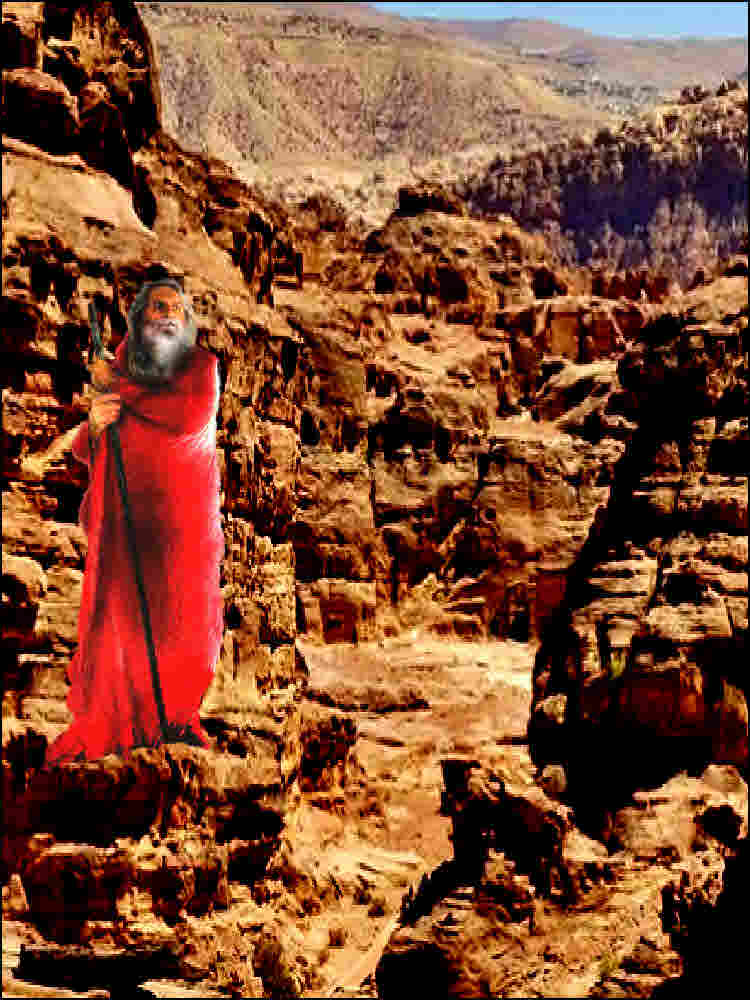In the annals of religious history, few narratives are as compelling as that of Abraham’s exile. This journey, often perceived through the lens of faith and obedience, extends beyond mere obedience to divine command; it encapsulates a profound exploration of identity, belonging, and the quest for transcendence. The Bahá’í teachings elevate the story of Abraham, illuminating his experiences as emblematic of the enduring human spirit in the pursuit of divine guidance. The Bahá’í perspective provides distinctive insights into this narrative, reverberating with contemporary significance.
Abraham, revered as a patriarch in Judaism, Christianity, and Islam, stands as an archetype of faith obfuscating the ordinary boundaries of existence. His departure from Ur of the Chaldeans not only marks a pivotal transition in his own life but also heralds the emergence of a lineage steeped in monotheism and prophetic tradition. The act of setting out into exile signifies a fundamental rupture from one’s past—an abandonment of familiar surroundings and a willingness to embrace uncertainty. This theme resonates deeply within Bahá’í teachings, which emphasize the importance of personal spiritual journeys and the transformative power of sacrifice in the pursuit of higher truths.
One of the more captivating facets of Abraham’s story is his profound relationship with God, which underscores the concept of the Covenant. The Bahá’í Faith places substantial emphasis on the idea of divine promises and covenants, viewing them as instruments for humanity’s collective progression toward unity and spiritual maturity. Abraham’s covenant with God is emblematic of a harmonious relationship that transcends mere obedience; it signifies an intimate dialogue wherein both parties are engaged. This narrative not only provides a historical framework for understanding God’s interaction with humanity, but also reflects the Bahá’í belief in a progressive revelation of divine will.
The notion of exile itself warrants deeper examination. For many, exile is synonymous with loss and dislocation. However, within the Bahá’í context, it can also symbolize liberation and enlightenment. Abraham’s exile is a transition that paves the way for the establishment of new values and principles grounded in divine guidance. It is a philosophical continuum that invites individuals to reflect on their own spiritual journeys, motivating them to seek out their own ‘land of promise.’ Far from a desolate venture, exile emerges as a transformative crucible that cultivates resilience and broadened understanding.
Further, the narrative delineates the tension between faith and doubt—a fundamental struggle that any seeker may confront. Abraham’s initial trepidation in the face of divine command embodies a universal sentiment; it underscores the reality that faith is often intertwined with uncertainty. The Bahá’í writings suggest that doubts are not antithetical to faith but are, rather, integral to the process of spiritual growth. This perspective invites individuals to embrace their uncertainties and utilize them as catalysts for deeper inquiry and understanding.
In examining why the story of Abraham maintains a profound fascination across different cultures and epochs, one must consider the archetypical elements embedded within the narrative. The journey into exile serves as a metaphor for individual quests for meaning and purpose. In a world rife with complexities and challenges, the struggle for spiritual authenticity is a resounding theme that resonates with diverse populations. The Bahá’í teachings accentuate this interconnectedness of humanity’s spiritual endeavors, highlighting the imperative for collective progress and unity.
Moreover, Bahá’í thought extends this discourse by advocating for the principle of unity in diversity, encouraging adherents to recognize the shared values that cut across various faith traditions. Abraham’s story, rich in symbolism and significance, transcends sectarian boundaries, engendering a shared reverence among the believers of different faiths who see in him a bridge between divergent theological landscapes. This inclusive perspective is particularly relevant in contemporary society as it grapples with increasing polarization, offering a framework for compassionate dialogue and mutual understanding.
The broader implications of Abraham’s exile also pertain to the values of justice and equity—principles that lie at the heart of Bahá’í teachings. As a prelude to the establishment of a new social order, the concept of justice underscores the belief that true spirituality must translate into action. The plight of those who endure exile as Abraham did—often marginalized and impoverished—demands a collective response that prioritizes social justice and the eradication of inequality in all forms. Abraham’s story stresses the responsibility of individuals and communities to ensure that the ideals of faith manifest as tangible reality in society.
Lastly, the legacy of Abraham culminates in the assertion that individual spiritual journeys can indeed have collective repercussions. As followers of Bahá’u’lláh, the Prophet-Founder of the Bahá’í Faith, draw from the narrative of Abraham, they are reminded of their role in fostering a world characterized by peace, justice, and a recognition of fundamental human rights. The continuous reflection upon Abraham’s exilic experience compels believers to engage with their own spiritual truths while steadfastly contributing to the betterment of humanity as a whole.
In conclusion, the story of Abraham’s exile is replete with layers of meaning that extend far beyond its historical account. Through the lens of Bahá’í teachings, it emerges as a profound exploration of faith, sacrifice, justice, and the sanctity of human connection. His journey is not merely a personal transformation but symbolizes humanity’s collective aspiration toward unity and a higher understanding of the divine will. This enduring narrative persists as a beacon for seekers navigating the complexities of existence in pursuit of spiritual clarity and communal harmony.
